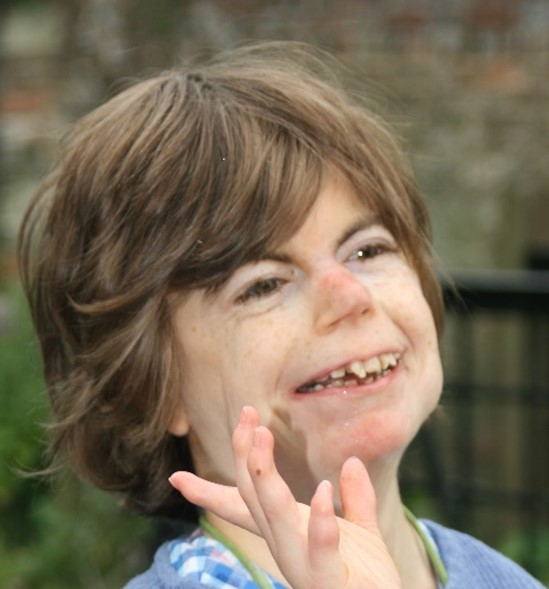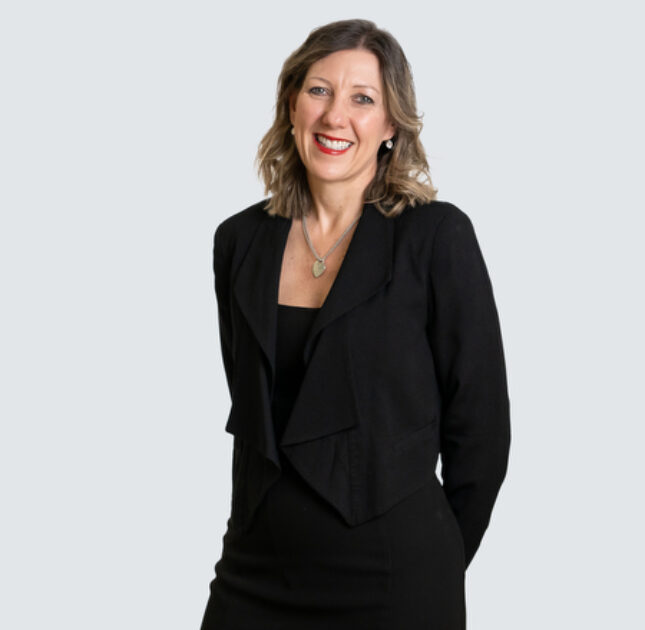Juliet Saunders died at home on 9 March 2020 and an inquest touching her death was held in April 2021. The Coroner found that, but for the failures by the staff at the King George Hospital A&E department, in Essex, her death and suffering would have been prevented. The Coroner concluded the failures in care amounted to neglect and issued a Prevention of Future Deaths report.

Juliet was diagnosed with Cornelia de Lange Syndrome shortly after her birth. She was of short stature, had hearing impairment, along with feeding difficulties and learning disabilities. But she lived a healthy and happy life, enjoying a busy schedule at her daycentre, including horse-riding. She was cared for by her parents who had devoted their lives to ensuring that she was happy and fulfilled.
Following her death, the family thought there had been errors in her care and an inquest was opened. The Barking, Havering and Redbridge University Hospitals NHS Trust (BHRUT) also opened an internal investigation. The family initially represented themselves at the inquest but quickly found that the process was complex and difficult and they worried their voice would not be heard. They instructed top 100 UK law firm, Hugh James, to assist with the inquest and Barrister, Rose Harvey-Sullivan, of 7BR Chambers,.
The inquest was complex and a very difficult emotional experience for the family, who felt that the BHRUT did not readily acknowledge the failures in care and did not provide any apologies to the family during the inquest. The internal investigation was rewritten after the first pre inquest review, but the final version did still not readily accept all the failures later identified by the Coroner.
At the heart of the family’s concern was the protection of other vulnerable adults. The care provided to Juliet was recognised by the Coroner as lacking “clinical curiosity” and showing ‘diagnostic overshadowing’, which in essence, meant that Juliet’s learning disability was all the clinical staff had seen and they had not recognised she was suffering from a bowel obstruction, even after being advised that this was a high risk with the syndrome.
As part of the settlement of the legal claim the family attended a mediation in April 2022. The primary focus of the mediation was to hear and meet the staff at BHRUT that are implementing the learning and safety improvements that are being undertaken at the Trust.
The mediation opened with Juliet’s mother Christine, giving her account of the failures in care Juliet received and how she had not been listened to in A&E and the pain that the internal investigation and inquest process had added to their grief. This provided the staff with the opportunity to understand the process from a family’s perspective and was very powerful.
The family met with the A&E lead consultant, lead nurse for quality and safety, director of safeguarding, and the lead nurse for learning disabilities, in addition, a member of the NHS Resolution Safety and Learning team attended.
The family were able to be updated by the BHRUT staff on improvements that had been implemented, training of staff and plans for developing the future strategy. As part of the future development plan BHRUT asked if the family would continue to be involved in developing their learning and training plan. The family agreed and will maintain contact with the BHRUT and NHS Resolution to offer a parents’ perspective.
The impact of the mediation, whilst distressing, was welcomed by the family to enable them to share their story but was also very beneficial to understand that Juliet’s death had been a platform for specific, genuine improvements and ongoing learning.
It is already well recognised that adults with learning disabilities are far more at risk of missed diagnosis and suffering harm and premature death because of their complex presentations. NHS Resolution plan to share insight into the causes and injuries associated with claimants who have learning disability, and the clinical and non-clinical themes of claims for compensation.
Juliet’s mother Christine said after the mediation:
The ability to meet face to face with the staff at BHRUT was a positive end of the legal process. The staff all took the opportunity to make a heartfelt apology for our loss and explained how they were implementing changes to improve safety. I have taken comfort from the mediation process and would hope that the relationship that started at the mediation can now progress to allow us to continue to support the safety and learning so other families can avoid the pain which we and Juliet have suffered.
Lynda Reynolds, the head of the inquest team at Hugh James commented:
“I have attended many mediations and usually they are predominantly to try to conclude the litigation. This mediation was about learning from the errors identified by the Coroner. Using mediation as a tool to allow BHRUT, NHS Resolution and the family to share their story and share learning was a great help to the parents. I found the mediation was a powerful way of meeting the family’s needs. I truly hope that the Trust continue to improve safety and highlight the risk that learning disabled adults face when they are suffering from health issues.”



